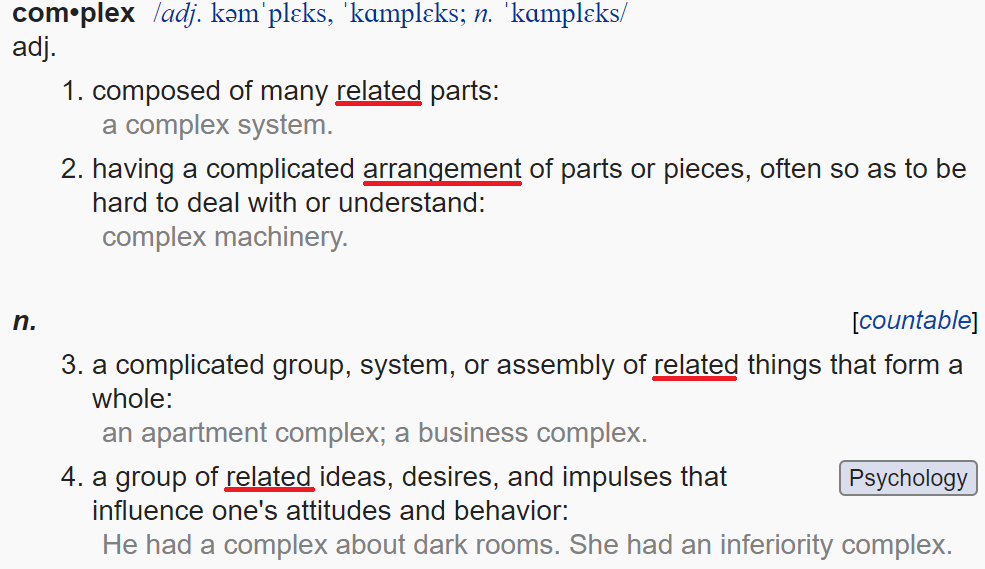Why people overgeneralize...
I consider that the most probable explanation is our propensity to reduce anxiety from not knowing the solution of a complex (relevant) problem.
We simply tend to prefer quick idiotic answers to complex issues than living with another ? in our minds. This could apply to our tendency to Manichaeism.
Why did this tragedy happen? -> That person was just evil, an idiot, etc. And same for positive choices or even performance. -> That person is just good, talented, etc.
The cause and context of many choices or phenomena is probably very complex. Not even psychology can consistently explain many of them. Hell, there are theories in psychology and even schools that are very inconsistent with each other. Yet many people tend to be quick in giving some answer.
More than avoiding the not knowing, it's about closing a system in a cognitive structure as fast as possible, avoiding and removing any potential cognitive dissonance:
There is a problem or riddle relevant for me -> I don't understand it and I am not able to solve it or contribute to the solution. -> I can't just not do anything without understanding. -> Nevermind... It's probably this other idiotic thing (men are trash) -> Relief.
Especially useful when the short, quick, idiotic answer implies that you don't have to do anything else (aside from yelling the same in Twitter and enjoying the social reward of being a good person). It's even useful for low performance in school/collage: many people prefer to think they are just inevitably dumb and can't do better, establishing an external locus control, instead of trying to find a better explanation and improve.
Obviously people don't go around always pronouncing this in their minds. But there is a clear pattern to oversimplify problems and their solutions (hence the name of this blog, which is more a way to dodge Twitter's character limits than a blog).
Why question it in the first place if we tend to avoid anxiety?
I have said many times, that we aren't designed to be smart and free by default. Our capacity to develop incredible skills is a side-effect from tendencies related to survivor.
We have a tendency to avoid anxiety, but also a tendency to feel some degree of curiosity. Both are related to survivor: the former is useful to not waste too much energy in things we can't immediately solve, for example, while the latter is useful to keep moving and maybe discover new stimuli/partners/nutrients/a better habitat, etc. Instead of feeling satisfied by default where we are. With no curiosity or negative feelings like boredom that try to keep us moving/looking for new goals.
If we were designed to be smart by default. Even unnecessarily smart regarding survivor in its most basic form, we wouldn't even perceive anxiety as something negative. Our motivational system would actually reward us for having many question marks in our minds and trying to solve them despite little to no results. The psychological experience of anxiety itself would be even positive, maybe.
Sadly we aren't designed like that because we evolved in a very different context. We can't tell our genes we already have more than enough energy and time. And trying to get smarter than what you are by default isn't pleasant many times.
This propensity to avoid anxiety could be relevant for other areas.
From its influence in the Dunning-Kruger effect (along with other factors like the social reward of looking knowledgeable), to the tendency to prefer simpler stimuli (memes over some elaborated argument or theory; simpler games over more complex ones; etc.).
The good thing is, however, that it's not rigid. Otherwise it wouldn't just be a tendency. There are people who prefer to feel that anxiety and try to solve problems respecting their complexity instead of giving quick idiotic answers.
And this is why adogmatism and argumentation are so important... Because even this small essay is probably too simple itself, and to some degree I could be trying to oversimplify. Yet anybody could try to counter-argument and reach together a proper answer or at least understanding of the issue.



Comentarios
Publicar un comentario